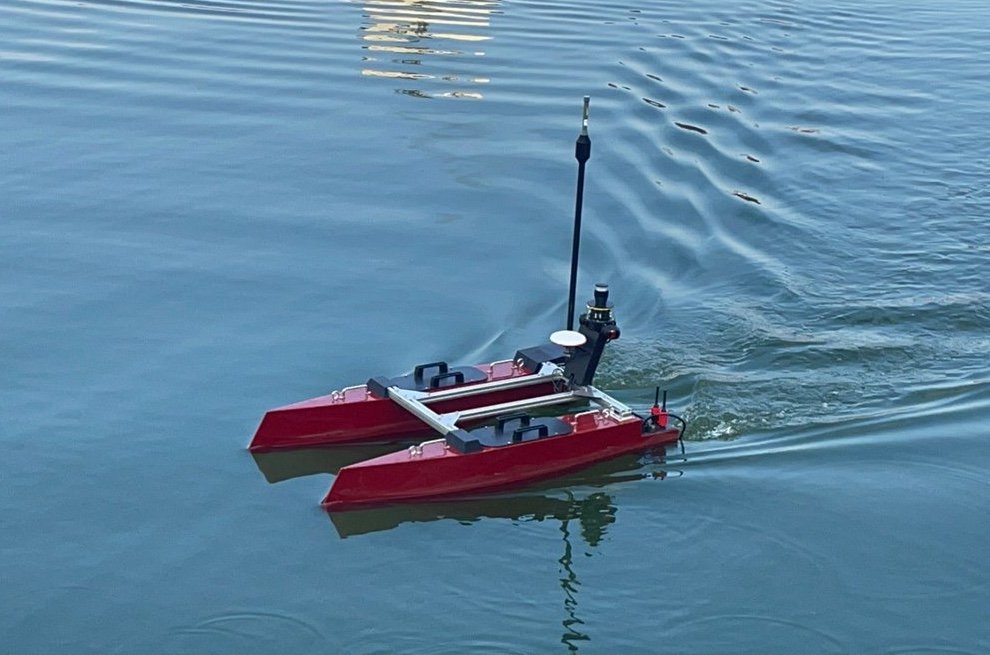In a significant boost to India’s naval technology, Garden Reach Shipbuilders & Engineers (GRSE) has formally handed over the “Jaldoot” Unmanned Surface Vessel (USV) to the Naval Science and Technological Laboratory (NSTL) under the Defence Research and Development Organisation (DRDO). This transfer took place in Visakhapatnam and signifies a new era in the development and deployment of autonomous naval assets.
The “Jaldoot” USV is a product of joint innovation between GRSE and NSTL. It was designed specifically for survey and communication tasks. It boasts a compact design and lightweight build, making it highly maneuverable and efficient for its intended missions. The vessel is powered by a rechargeable Lithium-ion battery, allowing for extended operations with capabilities like waypoint navigation and station-keeping, crucial for precise and autonomous operations.
During its development, Jaldoot underwent rigorous testing, culminating in acceptance trials held from October 17 to 21, 2024, where it demonstrated its capabilities in real-world scenarios. The USV’s ability to integrate various sensors, including an acoustic positioning system for tracking underwater vehicles, side scan sonar for search and rescue, and high-definition night vision cameras, showcases its versatility.
Joint Development of ‘Jaldoot’ USV by GRSE and NSTL, DRDO
— GRSE – Garden Reach Shipbuilders & Engineers Ltd (@OfficialGRSE) December 5, 2024
Kolkata/Visakhapatnam, 05 December 2024: Garden Reach Shipbuilders & Engineers (GRSE) formally handed over the “Jaldoot” Unmanned Surface Vessel (USV) to Naval Science and Technological Laboratory (NSTL) in Visakhapatnam,… pic.twitter.com/9HjkBiiPWw
Cmde P R Hari (Retd), Chairman and Managing Director of GRSE, expressed his pride in the achievement, stating, “This delivery is not just a testament to the technological prowess of GRSE and NSTL but also to the government’s vision of ‘Atmanirbhar Bharat’ or self-reliant India in the defense sector. The Jaldoot project highlights our commitment to fostering indigenous technological development and supporting local start-ups like Rekise Marine, who played a pivotal role in this project.”
The NSTL, known for its focus on naval armament and related technologies, sees the addition of Jaldoot to its fleet as a strategic enhancement. It allows for advanced research into autonomous systems, potentially transforming how naval operations are conducted in terms of surveillance, reconnaissance, and communication.
This milestone is particularly timely as the Indian Navy is actively exploring the integration of unmanned systems into its operational framework. The Navy’s interest in such technologies for roles ranging from electronic warfare to logistical support indicates a shift towards a more technologically integrated naval force, prepared for future maritime challenges.
The delivery of the Jaldoot USV not only underscores India’s growing capability in autonomous defense technology but also opens avenues for further innovations in unmanned naval systems, potentially leading to more such collaborations in the future.


